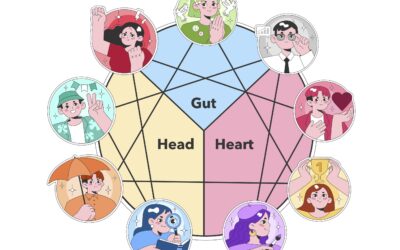By Joy McDonald Coltvet–
The day of her funeral was hot, so hot, and I must have looked overly warm because the funeral assistant did a double-take. “Are you okay? Do you need a glass of water?”
I declined, but in retrospect, I wonder why. Why do I decline a glass of water? Why is it so hard to receive help? Why do I answer so quickly, “I’m fine; we’re good” in these days of grief?
During the hospital days, when we were taking shifts to help out and still hoping that our cousin, Stephanie Joy, might live, our sweet neighbor, Ruth, brought over bakery. “When I’m worried about people, I bake for them,” she wrote. That lemon poppy seed loaf and those chocolate chip muffins disappeared in a wink. We ate up her love delivered in a Ziploc bag. But let’s be honest, grief and disbelief last so much longer than we give ourselves permission to admit.
It was a busy autumn. All the regular things were still expected at work, at church, at home, at school. When people asked with kind concern, “How are you?” I didn’t really have words. When I went a little deeper and ventured to try to describe the real feelings, I noticed that there’s really nowhere for the conversation to go after, “It’s just horrible.” Both my conversation partners and I would be left speechless when I said things like, “She just had a remarkable ability to make everyone feel so valued and important.”
When Jesus arrived after the death of Lazarus, Mary and Martha’s first words were: “If only you had been here, our brother wouldn’t have died…” How did this happen? How did we get here? For Martha, Jesus has a quick, spiritual comeback, but by the time Mary comes, Jesus is beginning to take it in. Jesus receives the immensity of their grief, and Jesus wails with them. My spiritual director put it this way: “Well, you’re grieving because you loved her.” My doctor says, “I know it’s hard to believe, but people survive. I’m not trying to minimize anything, but they (and you) will survive.”
So we walk with her loved ones and ours: a grieving spouse and parent, three little children who barely have words for this weird new reality but just know their mama’s absence. We meet up to play and to go to the zoo and hug them, when that’s okay with them. We try to show up and shut up and not ask “How are you?” Because how are they supposed to answer that?! We just keep letting them know we’ll come back again and again while life goes on.
Weeks turn into months, winter comes and goes. It has been raining for many weeks. We’ve barely seen the sun. But it’s April, and we dare to breathe in and speak out with Martha what we know about resurrection and new life. We survive, as my doctor said we would. We miss deeply our beloved cousin, friend, the one we never dreamed of having to say goodbye to, and we find ourselves more deeply connected than ever to the others whose hearts expanded with grief and Jesus, our beloved friend, who weeps with us and walks with us, step by step, into new life.
Joy McDonald Coltvet is pastor at Christ on Capitol Hill, St. Paul, Minnesota. She has a Doctor of Ministry in Practical Theology: Spirituality (Spiritual Formation).
This article is excerpted from the April 2019 issue of Gather magazine. To read more like it, subscribe to Gather.
More like this:
A priceless gift
In 1993, my husband and I moved from Southern California where I’d grown up to Berkeley, where I would begin graduate school. I was excited to be on this new adventure with the man who had been my high school sweetheart. We were off on our own, and anything was...
In the image of God
If you were to attend Sunday service at Holly Grove Lutheran Church in Lexington, North Carolina, you might notice that Pastor Anna E. Carter rarely leads worship alone. As she sets the table, serves communion, and processes down the aisle, there is a little boy at...
Faith in economics
What is the rule of your household? How do you manage your home? How do you make sure that everyone gets what they need and sometimes what they want? Who feeds the dog or cleans up after the cat? Who does the grocery shopping, and who pays for the groceries? How are...






A comment on why we respond “we’re fine”. Unsolicited advice is given by those with good intentions. Some blame the victim. Others don’t care to hear how those grieving, the caregiver or those who are ill are doing. Many take it as an opportunity for the inquirer to relate his/her experiences and pain. It’s less painful for those suffering to simply dismiss so called concern.